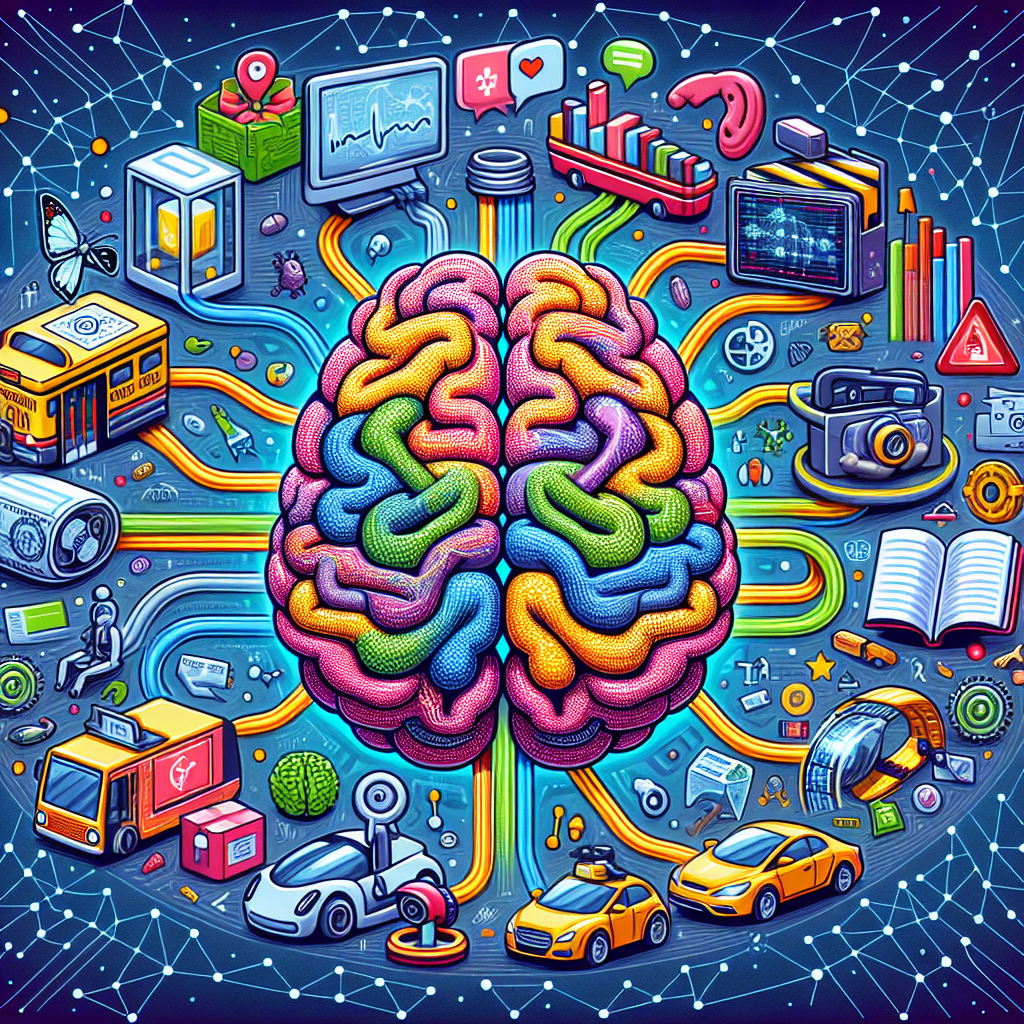Unleashing the Power of Artificial General Intelligence in Various Industries
Artificial General Intelligence (AGI) is a branch of artificial intelligence that aims to create machines that can perform any intellectual task that a human can. Unlike narrow AI, which is designed for specific tasks, AGI is intended to have the ability to learn and adapt to a wide range of tasks, much like a human brain. The potential of AGI to revolutionize industries is significant, with the ability to automate complex decision-making processes, improve efficiency, and drive innovation. In this article, we will explore the impact of AGI on various industries and how organizations can leverage this technology to gain a competitive edge.
Healthcare Industry
In the healthcare industry, AGI has the potential to revolutionize patient care, diagnosis, and treatment. With the ability to analyze vast amounts of medical data, AGI can assist healthcare professionals in making accurate diagnoses, predicting outcomes, and personalizing treatment plans. For example, AGI-powered systems can analyze medical images, such as X-rays and MRIs, to detect abnormalities and assist radiologists in making more accurate diagnoses. Additionally, AGI can help healthcare providers identify trends and patterns in patient data to improve preventive care and disease management.
Financial Services Industry
In the financial services industry, AGI can be used to detect fraud, optimize investment strategies, and improve customer service. AGI-powered algorithms can analyze vast amounts of financial data to identify anomalies and patterns that may indicate fraudulent activity. This can help financial institutions detect and prevent fraud in real-time, saving them millions of dollars in losses. Additionally, AGI can be used to create personalized investment recommendations based on individual preferences and risk profiles, improving the overall customer experience.
Manufacturing Industry
In the manufacturing industry, AGI can be used to optimize production processes, improve quality control, and predict equipment failures. AGI-powered systems can analyze data from sensors and machines to identify inefficiencies in production processes and suggest improvements. This can help manufacturers reduce costs, increase productivity, and improve product quality. Additionally, AGI can be used to predict equipment failures before they occur, allowing manufacturers to perform preventive maintenance and avoid costly downtime.
Retail Industry
In the retail industry, AGI can be used to enhance customer experiences, optimize inventory management, and personalize marketing campaigns. AGI-powered systems can analyze customer data to identify preferences and trends, allowing retailers to create personalized shopping experiences and targeted marketing campaigns. Additionally, AGI can be used to optimize inventory levels and pricing strategies, ensuring that retailers have the right products in stock at the right prices to meet customer demand.
Transportation Industry
In the transportation industry, AGI can be used to optimize logistics, improve safety, and enhance the overall customer experience. AGI-powered systems can analyze traffic patterns, weather conditions, and other factors to optimize route planning and scheduling, reducing transportation costs and improving efficiency. Additionally, AGI can be used to predict and prevent accidents by analyzing driver behavior and vehicle data in real-time. This can help transportation companies improve safety standards and reduce the risk of accidents.
FAQs
1. What is Artificial General Intelligence (AGI)?
Artificial General Intelligence (AGI) is a branch of artificial intelligence that aims to create machines that can perform any intellectual task that a human can. Unlike narrow AI, which is designed for specific tasks, AGI is intended to have the ability to learn and adapt to a wide range of tasks, much like a human brain.
2. How can organizations leverage AGI to gain a competitive edge?
Organizations can leverage AGI to gain a competitive edge by automating complex decision-making processes, improving efficiency, and driving innovation. By using AGI-powered systems to analyze data, identify trends, and make predictions, organizations can make more informed decisions and stay ahead of the competition.
3. What are some examples of AGI applications in various industries?
Some examples of AGI applications in various industries include:
– Healthcare: AGI can assist healthcare professionals in making accurate diagnoses, predicting outcomes, and personalizing treatment plans.
– Financial Services: AGI can be used to detect fraud, optimize investment strategies, and improve customer service.
– Manufacturing: AGI can optimize production processes, improve quality control, and predict equipment failures.
– Retail: AGI can enhance customer experiences, optimize inventory management, and personalize marketing campaigns.
– Transportation: AGI can optimize logistics, improve safety, and enhance the overall customer experience.
4. What are the potential benefits of using AGI in industries?
Some potential benefits of using AGI in industries include:
– Increased efficiency and productivity: AGI-powered systems can automate repetitive tasks, analyze data faster, and make more accurate predictions, leading to increased efficiency and productivity.
– Improved decision-making: AGI can help organizations make more informed decisions by analyzing data, identifying trends, and predicting outcomes.
– Enhanced customer experiences: AGI can personalize products and services based on individual preferences, improving the overall customer experience.
– Cost savings: AGI can help organizations reduce costs by optimizing processes, detecting fraud, and predicting equipment failures.
In conclusion, the potential of Artificial General Intelligence to revolutionize industries is significant, with the ability to automate complex decision-making processes, improve efficiency, and drive innovation. By leveraging AGI-powered systems, organizations can gain a competitive edge and stay ahead of the competition. As AGI continues to evolve and advance, its impact on industries will only continue to grow, shaping the future of work and business.

